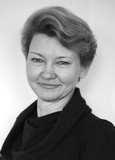Practice-oriented training for students in the fitness industry
Keywords:
training courses, model, fitness programs, students, efficiency.Abstract
Objective of the study was to validate the model of practice-oriented training for students in the context of group fitness instructor training courses, and to empirically demonstrate its efficacy in the field of pedagogy.
Methods and structure of the study. To accomplish the objective, we employed the following techniques: a review of scholarly and methodological publications, software, simulation, surveys, ranking, and expert evaluation. The pedagogical investigation was conducted at the Institute of Physical Culture and Sports (IPC&S) of the Herzen State Pedagogical University. It involved 485 students in their fourth year of undergraduate and graduate studies, as well as participants in advanced training courses in fitness.
Results and conclusions. The article outlines the rationale for the implementation of practice-oriented training for students enrolled in instructor training programs for group fitness classes in higher education institutions. This approach is crucial for developing the theoretical, methodological, and practical skills of undergraduate and graduate students, as well as for conducting fitness classes in a student fitness club as part of extracurricular activities, with the support of student self-governance.
Based on the feedback from students, the objectives and goals of the training programs were established, the most popular fitness programs were identified, and their content was adjusted. The hierarchy of factors that determine the necessity for developing practice-oriented training for students in instructor training programs for group fitness classes was determined.
Fitness programs were developed and approved for students to choose from.. The fourth-year students and postgraduate students were educated through the advanced training course «Instructor of group fitness programs» (72 hours).
References
Grudnitskaya N.N. Kompetentnostnyy podkhod v prepodavanii fitnesa. Fizicheskaya kultura i sport: integratsiya nauki i praktiki. Proceedings XIII International scientific-practical conference. Stavropol, October 5, 2016. Stavropol: SKFU publ., 2016. pp. 62-63.
Saykina E.G., Smirnova Yu.V. Aktualizatsiya professionalnoy podgotovki spetsialistov po fitnesu v vysshikh uchebnykh zavedeniyakh v usloviyakh novykh obrazovatelnykh standartov. Sovremennyye problemy nauki i obrazovaniya. 2015. No. 3. 301 p.
Saykina E.G., Kuzmina S.V., Zagryadskaya O.V., Lupanova E.S. Povysheniye urovnya metodicheskoy podgotovki obuchayushchikhsya vuzov fizkulturnogo profilya v usloviyakh studencheskogo fitnes-kluba. Teoriya i praktika fizicheskoy kultury. 2024. No. 5. pp. 12-14.
Serper S.A., Buranok O.M. Fitnes i obshchekulturnyye kompetentsii budushchikh spetsialistov po fizicheskoy kulture: k voprosu o roli gosudarstvennykh standartov i programm. Izvestiya Samarskogo nauchnogo tsentra Rossiyskoy akademii nauk. Sotsialnyye, gumanitarnyye, mediko-biologicheskiye nauki. 2017. Vol. 19. No. 4. pp. 46-54.

Additional Files
Published
How to Cite
Issue
Section
License
Copyright (c) 2025 Theory and Practice of Physical Culture

This work is licensed under a Creative Commons Attribution 4.0 International License.
